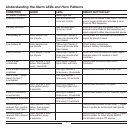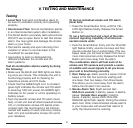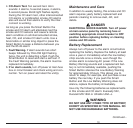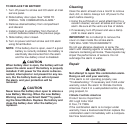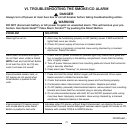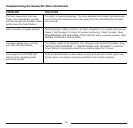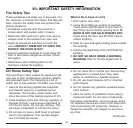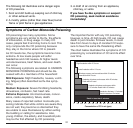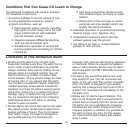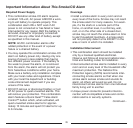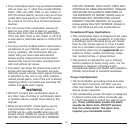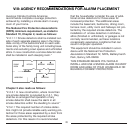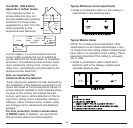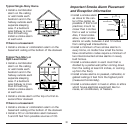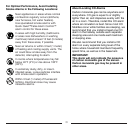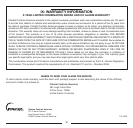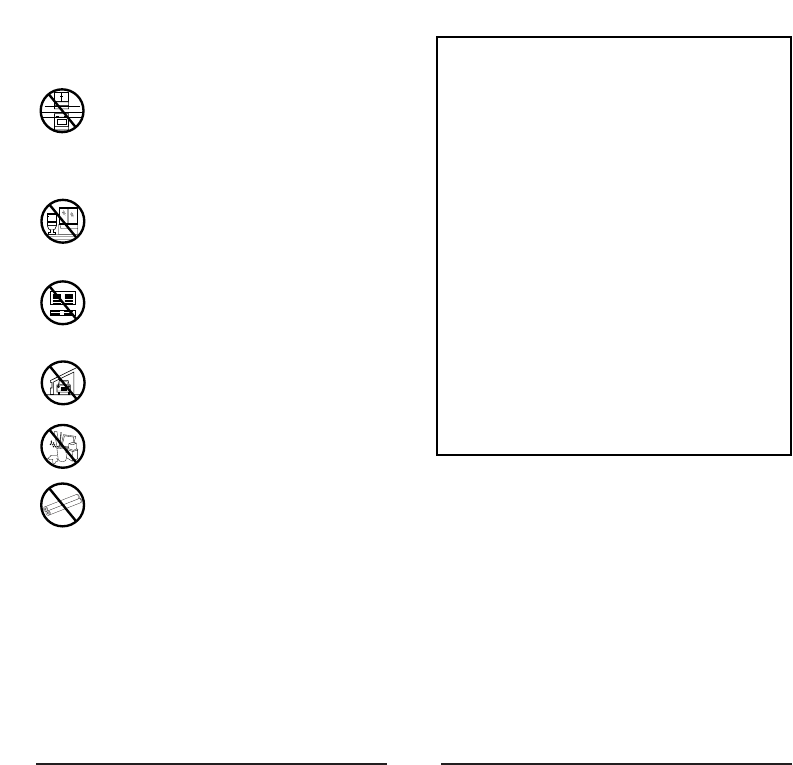
Near appliances or areas where normal
combustion regularly occurs (kitchens,
near furnaces, hot water heaters).
Use specialized smoke alarms with
Quick Quiet™False Alarm Control™
alarm control for these areas.
In areas with high humidity, (bathrooms
or areas near dishwashers or washing
machines) install at least 10 feet (3 meters)
away from these areas, if possible.
Near air returns or within 3 feet (1 meter)
of heating and cooling supply vents. The
air could blow smoke away from the
detector, interrupting its alarm.
In rooms where temperatures may fall
below 40°F (4°C) or rise above 100°F
(38°C).
In extremely dusty, dirty, or insect-
infested areas. Loose particles interfere
with smoke alarm operation.
Within 3 feet (1 meter) of fluorescent
lighting. Electrical noise may cause
nuisance alarms.
31
For Optimal Performance, Avoid Installing
Smoke Alarms in the Following Locations:
About Locating CO Alarms
Carbon monoxide gas can be anywhere and
everywhere. CO gas is equal to or slightly
lighter than air, and disperses evenly with the
air in a room. Therefore, install this CO alarm
where air circulation is best. Since most CO
fatalities occur while families are sleeping, we
recommend that you install at least one CO
alarm in the hallway outside each separate
sleeping area and one inside each bedroom
or sleeping area.
We also recommend that you install a CO
alarm on every separate living level of the
home where household members frequently
spend time, as well as in the basement.
IMPORTANT!
This alarm will only indicate the presence
of carbon monoxide gas at the sensor.
Carbon monoxide gas may be present in
other areas.



